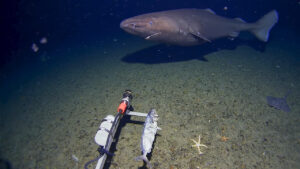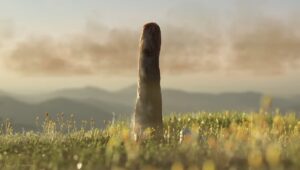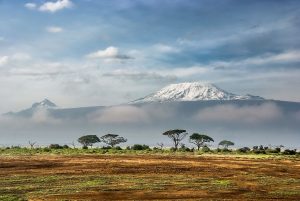Animals in Kruger National Park, South Africa, fear human voices above all other noises. Roughly 95% of mammals in the region flee at the sound of human voice recordings. This figure is significantly higher than those that flee at the sound of a lion’s roar.
Scientists hid speakers and cameras around water holes for the study and the recordings played people quietly speaking in local dialects. Researchers concluded that wild animals were twice as scared of human conversation compared to the noise of lions growling.

Sunrise in Kruger National Park. Photo: Shutterstock
An instant reaction
Researchers scrutinized thousands of hours of video recordings as part of the study. Impalas, hyenas, warthogs, rhinos, elephants, giraffes, kudu, and leopards were not only twice as likely to run away at the sound of a human voice, but they also fled 40% faster than when they heard lions, dogs, or guns. In one video, a leopard instantly drops its recent catch in its haste to leave the situation. With other noises, animals would hesitate before running.
The reactions show how animals in Kruger have learned to associate humans with danger. This is likely because of hunting and is not isolated to the National Park. “Our results greatly strengthen the growing experimental evidence that wildlife worldwide fears the human ‘super predator’ far more than other predators. The very substantial fear of humans demonstrated can be expected to cause considerable ecological impacts,” the research team said.
Elephants displayed different behavior from other mammals. When the speakers played lion noises they did not flee, instead, they banded together and broke all the equipment producing the noises.

Animals gather around a watering hole. Photo: Shutterstock
Damaging ecosystems
The level of fear shown by this study can greatly impact ecosystems. The animals fleeing human voices were actively leaving a watering hole during the dry season, something they would usually be extremely reluctant to do. Other animals abandoned food that they had spent time and energy to catch.
Researchers hope that the study will help protect animals from hunting and poaching. They plan to plant loudspeakers in high-risk poaching areas and can then play the sounds of humans to drive animals away from poachers.
The study also highlights the potential impacts of tourism-based conservation. Tourism can protect wildlife and wild spaces, but tourists may also induce fear in the wildlife.






